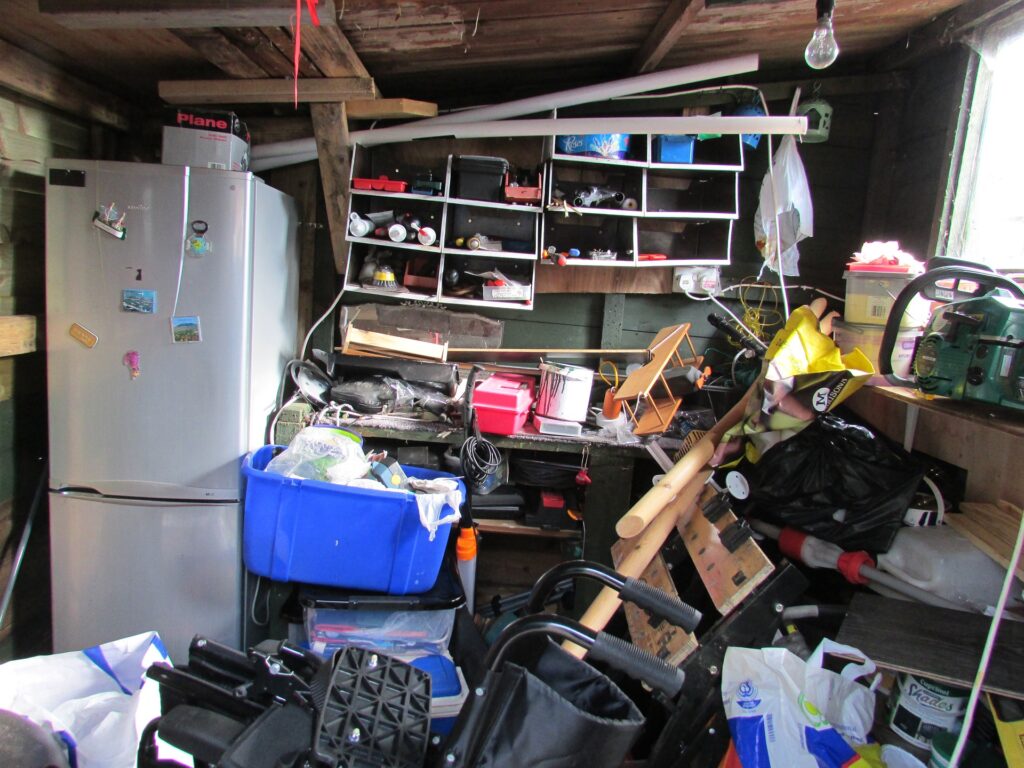 Hoarding is not something someone can quickly stop just because you asked them to. It’s a psychological disorder that requires help from a professional, and some specialists are experienced and trained to aid hoarders. They can help determine the reason behind the hoarding and find effective ways to treat it. Simply cleaning the hoarders’ space is not enough because if you don’t take care of the source of the problem, they could go back to their old ways.
Hoarding is not something someone can quickly stop just because you asked them to. It’s a psychological disorder that requires help from a professional, and some specialists are experienced and trained to aid hoarders. They can help determine the reason behind the hoarding and find effective ways to treat it. Simply cleaning the hoarders’ space is not enough because if you don’t take care of the source of the problem, they could go back to their old ways.
Below are some of the common signs that someone suffers from this disorder. If you suspect your loved one has hoarding problems, refer to the list below. If you see one or more of these signs, there’s a big chance he might have this condition.
- Feeling anxious with the thought of getting rid of things.
- Holding on to objects that seem to have no value.
- The rooms at home no longer serve their purpose because of the many items put there.
- Too many things that pose safety and health risks.
- Continuously adding more things without recognizing that it’s an issue.
Talk to your loved one.
Those who suffer from hoarding disorder may not accept that they have a problem. So, be careful and more empathetic when talking to your loved one about it. It could be a slow process, but be patient until they open up. They might admit they have a problem, or they might genuinely be oblivious to the issue. They may also try to hide the issue, or parts of it. For example, a hoarders house is usually infested with pests, which can often result in them being bitten in their sleep. Bite marks on the skin is a good sign of an issue in the house, so even if they won’t let you into their home, or into a specific room, you’ll know something is wrong. They may try to hide the bites themselves under long clothing, but it’s important to get them to show you the issue as soon as possible. Bites can become infected, whilst some pests carry diseases. Rats are particularly problematic, so if you suspect a rodent infestation, you may need to contact a firm that offers rodents in attic removal services. Do this with your loved one’s permission, however, or they may close themselves off even further if you go ahead without telling them.
Get help from mental health experts.
Do this with the consent of your loved one, as you cannot force hoarders to get help if they are not open to it. Once you encourage them to get professional help, find a mental health expert specializing in hoarding disorder. They can help find the reason behind the problem and determine treatment options to help your loved one overcome this.
Have a plan for cleaning.
Cleaning a hoarder’s house is different from regular cleaning because it involves many items that have been gathered over the years. Get your loved one involved in planning, so he would know what to expect and it would not feel too overwhelming for him. If you feel the task is too much, you can get help from a house cleaner. Before doing this, it’s definitely worth searching ‘what should I do before the housecleaner comes‘ to get yourself and your home prepared for the deep clean. You may hire a bin for this. You may also check items you can recycle or sell, such as appliances or other things made from metal. If you are in Kansas City, a scrap metal Kansas City facility will buy items made from metal. Your loved one could use the money to get continuous help from a mental health specialist or improve his condition at home.
After planning for the cleaning process, another crucial aspect to consider is addressing any pest infestations that may have arisen due to the hoarding conditions. This is where partnering with a pest control company like Aptive Idaho comes into play. With their expertise, they can effectively tackle any pest issues while also being sensitive to the unique challenges presented by hoarding disorder. A specialised company can also conduct UV cleaning after infestation cases to ensure the area is thoroughly sanitized and free from harmful bacteria or pathogens left behind. By involving your loved one in the planning, they can feel more in control and less overwhelmed by the process. Additionally, considering the significant task ahead, enlisting the help of a professional house cleaner can streamline the process and ensure thorough results.
Start cleaning and organizing.
Once you have a concrete plan for cleaning and organizing, it’s time to act on it. Get help from other family members and friends too. It may not be an overnight process, but tackle one area at a time until it’s clear.
It’s only the first step in this challenging journey. You should be there to support and guide your loved ones to prevent them from going back to their old ways.







